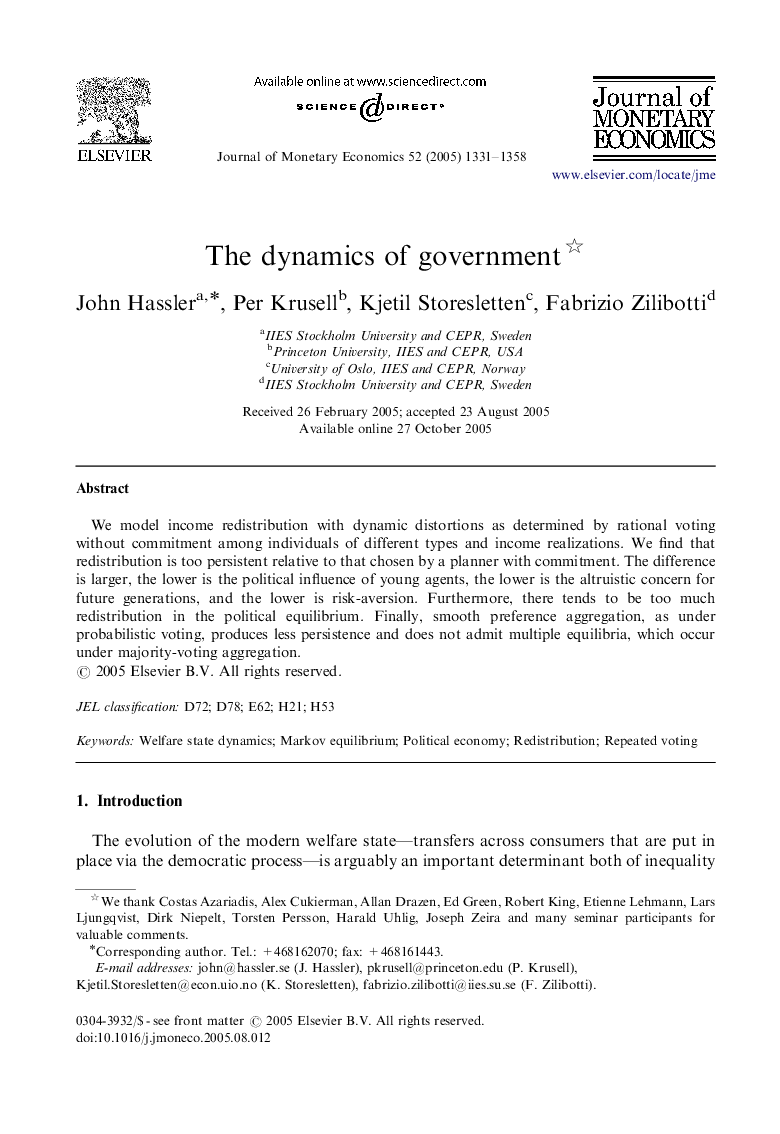| Article ID | Journal | Published Year | Pages | File Type |
|---|---|---|---|---|
| 10478770 | Journal of Monetary Economics | 2005 | 28 Pages |
Abstract
We model income redistribution with dynamic distortions as determined by rational voting without commitment among individuals of different types and income realizations. We find that redistribution is too persistent relative to that chosen by a planner with commitment. The difference is larger, the lower is the political influence of young agents, the lower is the altruistic concern for future generations, and the lower is risk-aversion. Furthermore, there tends to be too much redistribution in the political equilibrium. Finally, smooth preference aggregation, as under probabilistic voting, produces less persistence and does not admit multiple equilibria, which occur under majority-voting aggregation.
Related Topics
Social Sciences and Humanities
Economics, Econometrics and Finance
Economics and Econometrics
Authors
John Hassler, Per Krusell, Kjetil Storesletten, Fabrizio Zilibotti,
